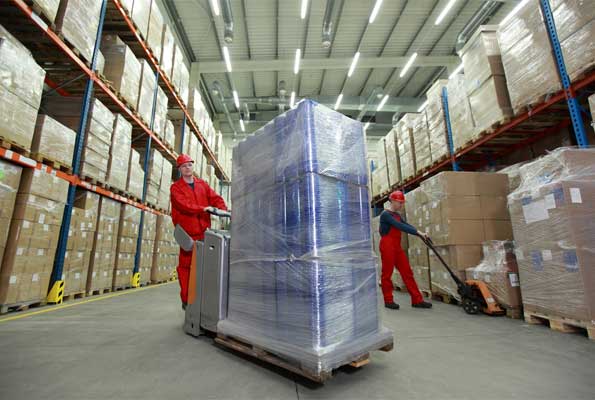According to Knight Frank, Riyadh’s warehouse rents increased by 20% in the first half as a result of the city’s efforts to meet the e-commerce boom’s increased demand for specialist stockrooms.
According to a London-based real estate company, warehouse rentals in the Kingdom have continued to rise over the past year, rising by 20% in Riyadh and 15% in Jeddah.
According to Faisal Durrani, head of research for Knight Frank’s Middle East and North Africa area, “For developers, the industrial market is their oyster given that the most sought-after stock—high quality, internationally specified warehouses—remains in short supply.”
“For now, the volume of planned stock is also constrained,” he continued. For instance, over 500,000 square meters have been finished in Riyadh during the past 12 months. The e-commerce and FMCG (fast-moving consumer goods) industries are two that have many occupiers investigating build-to-suit solutions at the moment.
In the first half, Riyadh’s warehouse rents averaged SR190 (USD 50.65) per square meter, with Logistics Park reaching SR280. The area is the most costly warehouse district in the city.
In contrast, Jeddah and Dammam had average leasing rates between January and June of roughly SR205 and SR230 per square meter, respectively.
According to the report, Saudi Arabia’s e-commerce industry has grown rapidly over the past several years, mostly as a result of increased internet access and network availability throughout the Kingdom.
“Like in other parts of the world, the epidemic has given the e-commerce industry in the Kingdom a major boost. Generation Z, or people under 25, is particularly noticeable for the seemingly permanent shift in attitudes toward online shopping,” the survey noted.
The MODON, or Saudi Authority for Industrial Cities and Technology Zones, agreement to develop 14 cutting-edge warehouses in Jeddah, which are anticipated to be leased by major international e-commerce companies, was also highlighted in the report.
“The demand for warehousing has experienced an exciting increase in the Kingdom. The region’s ambitious megaprojects and the growing e-commerce industry, among other things, can be blamed for this uptick,” according to Harmen De Jong, partner and head of strategy and consulting at Knight Frank for the MENA region.
De Jong also praised the Saudi government’s initiatives to make the Kingdom a premier industrial and logistical market.
“The government’s dedication to developing a top-notch industrial and logistics market in the Kingdom is evident,” he continued. For example, the proposal to build 59 logistics facilities by 2030, totalling more than 100 million square meters, will serve to support the growth of the quickly developing e-commerce industry.



